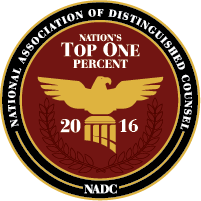Conspiracy Crimes
A criminal conspiracy typically consists of an agreement between two or more parties to commit a crime and an “overt act” by at least one of the co-conspirators in furtherance of the crime. Federal criminal laws prohibit conspiracies to commit specific crimes, as well as prohibiting more broadly conspiracies “to commit an offense against the United States,” conspiracies to “defraud the United States,” and conspiracies to infringe on the “rights or privileges” of another person.
To prove that a criminal conspiracy existed, a prosecutor is not required to prove that there was a written agreement nor is he or she required to prove that all of the co-conspirators knew one another. Moreover, certain conspiracies, such as a conspiracy to distribute narcotics, do not even require proof that an overt act was performed in furtherance of the conspiracy.
Federal criminal conspiracies are punishable by significant fines and potential terms of imprisonment, which are in addition to any applicable punishments for any underlying criminal objects of the conspiracy. Furthermore, co-conspirators are liable for one another’s criminal acts committed in furtherance of the conspiracy.
Given the high stakes involved, it is imperative that individuals facing a federal conspiracy charge choose an attorney with the knowledge and experience necessary to defend such a case. I have chosen to focus my practice on White Collar Crimes, including conspiracy charges. Over the last 40 years, I have earned a successful track record in high stakes white collar matters and have argued before the United States Supreme Court as well as other federal courts throughout the country. I fight hard to enforce the rights of my clients, and I believe in the integrity of that fight.
If you have questions or concerns about a criminal conspiracy matter, I invite you to contact me directly to discuss it at 888-700-1555 or Patrick@MullinDefense.com. You will discuss your concerns with me personally—never an associate or a paralegal. In addition, you should know that your contact with me, and with my firm, is privileged under the law, regardless of whether or not you decide to retain my firm to represent you.







